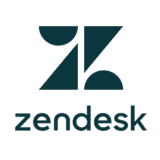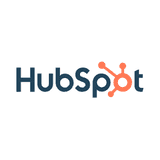- Free Version: Available for teams of up to 10
- Pricing: Premium plan $24/month (with a free 30-day trial period)
- Platforms supported: Available on mobile app (iOS and Android) or a web-based software
Why use SafetyCulture?
Considered one of the most versatile and scalable platforms, SafetyCulture is the best choice for large enterprises across industries, from manufacturing and retail to aviation and healthcare. Because it is cloud-based, teams operating in various sites—even from different countries—can easily access information vital to their daily workflows and collaborate for success. Best of all, its mobile-first design allows users to work on the most complex tasks (e.g., routine inspections, incident reporting, compliance documentation) even when offline.
Features:
- Tailor workflows based on the company’s goals and specific requirements with the help of templates and standardize processes to reduce manual, costly errors by utilizing task-relevant checklists available in the Public Library.
- Easily upload, retrieve, and share plans, employee certificates, and reports using a centralized repository for record keeping and fully integrating the platform into the company’s current system and other applications.
- Swiftly identify and resolve issues by reporting observations (e.g., hazards, potential risks, etc.), tagging their specific location and individuals involved through the Sites, geo-tagging, and Heads Up features.
- Plan strategically and enhance decision-making processes by reviewing reports and evaluating KPIs (Key Performance Indicators) and other metrics.
- Empower workers by providing suitable training and upskilling programs that ensure their competence and compliance with industry standards and regulations.
Why use Airtable?
Praised for its flexibility in project and data management, Airtable is a comprehensive collaboration tool businesses of all sizes can benefit from. Its intuitive, no-code interface, remarkable customization capabilities, and seamless integrations with other business-critical digital solutions attract millions of global users.
Features:
- Application Builder
- AI-Powered and Automated Workflows
- Interface Designer
- Free Version: Yes. This is for individuals and small teams.
- Pricing: Team plan starts at $20 per seat per month, billed annually. Contact the sales team for enterprise-scale administration. (with a 14-day free Pro trial)
- Platforms supported: Web, Desktop, iOS, Android
Why use Asana?
A highly-awarded project management platform, Asana is considered by many as one of the best enterprise-level software because of its extensive collaborative tools. Used by one of the most well-known digital music service providers, it excels in task organization and goal tracking, fostering team productivity and project success.
Features:
- Project Management with Custom Fields
- Workload and Time Tracking
- Automated Workflows with Rules
- Free Version: Yes, This is free for individuals and small teams
- Pricing: Starts at $10.99 per user, per month, billed annually (with a 30-day free trial)
- Platforms supported: Web, Desktop, iOS, Android
Why use Salesforce?
An industry leader in customer relationship management (CRM), Salesforce offers an extensive tool listing powered by data and AI. With the help of this incredible software solution, companies successfully drive sales, customer engagement, and business growth. Some of the biggest names in the financial industry trust this platform and often add this as an integration with their system.
Features:
- Personalized CX
- Einstein 1 Platform (AI-CRM)
- Net Zero (Carbon Neutral Solutions)
- Free Version: None
- Pricing: Most Salesforce solutions (e.g., Platform, Sales, and Service) start at $25 per user, per month, billed annually (with a 30-day free trial and demo playlists)
- Platforms supported: Web, iOS, Android
Why use Trello?
Companies looking for a reliable project management platform choose Trello. Its simple interface and visual-focused approach appeal to small businesses and large enterprises, including multinational tech companies. Many agree that the Trello boards and card system enhance collaboration, streamlining task assignment, review, and reporting.
Features:
- Project View
- Butler Automation
- Power-Ups with Plugins
- Free Version: Yes. This is free for individuals and small teams.
- Pricing: Starts at $5 per user per month, billed annually (with a 14-day free trial)
- Platforms supported: Web, Desktop, iOS, Android
Why use Zoom?
After gaining prominence during the COVID-19 pandemic for its seamless video conferencing, Zoom has become a vital component for millions all over the world. Its user-friendly interface, reliability, and robust features make it one of the must-have enterprise software systems, enabling virtual meetings, webinars, and remote collaboration.
Features:
- HD Audio and Video Meetings
- Whiteboard for Brainstorming
- Revenue Accelerator (Insights from Meetings)
- Free Version: Yes. This allows 40-minute meetings for up to 100 attendees.
- Pricing: Pro plan costs $14.99 per user per month
- Platforms supported: Web, Desktop, iOS, Android
Why use Jira?
Perhaps the most powerful solution under Atlassian, Jira is an awarded project management tool. One of its most famous clients is the online marketplace for short and long-term homestays. It excels in agile project management, issue tracking, and seamless collaboration, making it a perfect digital tool for large enterprises.
Features:
- Interactive Timelines
- Agile Boards (e.g., Scrum and Kanban)
- Reports and Insights
- Free Version: Yes, available for teams of up to 10 users.
- Pricing: Standard plan costs $8.15 per user per month (with a 7-day free trial)
- Platforms supported: Web, Desktop, iOS, Android
Why use Zendesk?
Primarily a customer service platform, Zendesk has been recognized by the Stevie Awards for streamlining various workflows to enhance customer experience. With its no-code process automation, small businesses and global corporations can plan their operations with just a few clicks and ensure efficiency for increased customer satisfaction.
Features:
- Ticketing System
- Messaging and Live Chat
- Reporting and Analytics
- Free Version: None
- Pricing: Suite Team costs $55 per agent per month, billed annually (free trial provided upon registration)
- Platforms supported: Web, iOS, Android
Why use Slack?
Designed to improve productivity, Slack revolutionizes communication through instant messaging, file sharing, and robust integrations. Because the tools required are all located in one place, teams situated in different sites across the world can fully collaborate for operational success.
Features:
- Public and Private Channels
- Huddles (Live Conversation)
- Workflow Builder
- Free Version: Yes. This offers basic features for small teams in one workspace.
- Pricing: Pro plan costs $7.25 per user per month, billed annually (with a 90-day free trial)
- Platforms supported: Web, Desktop, iOS, Android
Why use HubSpot?
A customer experience platform, HubSpot has received accolades for its integrated suite of tools. Used by numerous businesses and by other software platforms for their sales and service needs, this software solution simplifies customer engagement and fosters business growth for both small start-ups and large enterprises.
Features:
- Marketing Automation
- Advanced CRM
- Data Sync with Programmable Automation
- Free Version: Yes. Foundational tools are offered free of charge.
- Pricing: Professional CRM suite starts at $1,600 per month, billed annually (with a 14-day free trial)
- Platforms supported: Web, iOS, Android
What is Enterprise Software?
Enterprise software is a comprehensive digital platform designed to meet the complex needs of large organizations, global conglomerates, and government entities. It serves as a centralized platform for planning to execution, addresses various administrative and operational workflows, and facilitates collaboration across multiple sites. By enhancing efficiency, enterprises can stay competitive in the complex and continuously evolving business landscape.
Importance
The complexity of an enterprise’s diverse operations, from top leadership to frontline operations, makes successful management challenging. Data silos, manual workflows, and communication issues result in poor decision-making and inefficient processes. Here are some specific reasons for utilizing enterprise-level software.
- Gain 360-degree Visibility – With the help of real-time reporting tools, managers can monitor risks in administrative and operational activities and get organized to handle any issue. Built-in analytics and daily KPI trackers provide a clear picture of business performance, helping in informed decision-making.
- Improve Efficiency – Business enterprise software digitizes data and streamlines routine processes, resulting in fewer errors, better resource allocation, and faster incident resolution. The platform also includes robust communication tools, breaking down data silos and ensuring seamless collaboration among teams.
- Secure Data Management – Enterprises go through a great deal of vital data daily. Thanks to a centralized dashboard and document repository, users can generate reports (e.g., inspections, audits, training credentials) and upload them for review in just a few seconds. Aside from keeping the information secure, the platform also helps guarantee compliance with industry and regulatory standards.
Fortune 300 companies like Lowe’s Home Improvement Store require enterprise software solutions to improve their processes. With the aid of a highly-rated platform, the company has greatly increased its efficiency, eradicated paper-based processes, and saved up to a million dollars a year, particularly in conducting inspections and audits.
Key Features
Finding the right software for enterprises that would suit the company’s specific goals, needs, and conditions is challenging. Personnel responsible for choosing the platform most apt for the business should start by reviewing the features. It should have the following:
- User Authentication and Access Control
- Data Management
- Template and Checklist Repository
- Workflow Automation
- Communication Tools
- Customer Relationship Management (CRM).
- Enterprise Resource Planning (ERP)
- Human Resource Management (HRM)
- Supply Chain Management (SCM)
- Financial Management:
- Data Security and Compliance
- Automated Report Generation
- Analytics
- Robust Integrations
- Customization and Scalability
- Mobile Accessibility
Selecting the Right Enterprise Software
Business owners and executives, compliance and security managers, IT supervisors, and HR teams will benefit from any of the options detailed above. Before making your final pick, take another look at the best enterprise business software in the summary below:
| Enterprise Software | Free Version | Paid Plan | Mobile App |
| SafetyCulture | Yes | $24/user/month* | Yes |
| Airtable | Yes | $20/seat/month* | Yes |
| Asana | Yes | $10.99/user/month* | Yes |
| Salesforce | No | $25/module/month* | Yes |
| Trello | Yes | $5/user/month* | Yes |
| Zoom | Yes | $14.99/user/mo | Yes |
| Jira | Yes | $8.15/user/month | Yes |
| Zendesk | No | $55/agent/month* | Yes |
| Slack | Yes | $7.25/user/month* | Yes |
| HubSpot | Yes | $1,600/month* | Yes |
* billed annually










